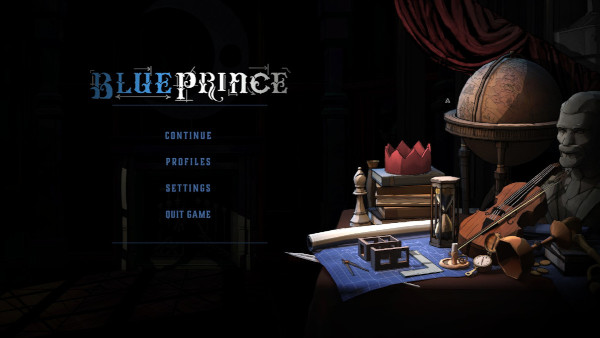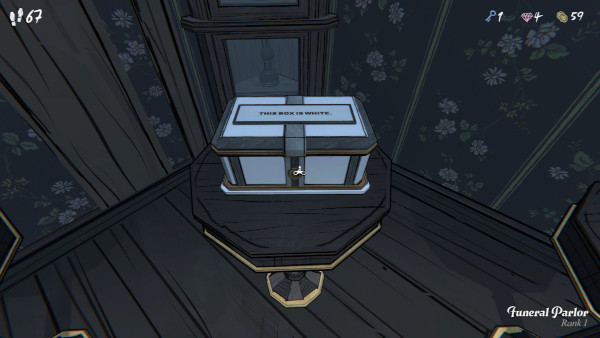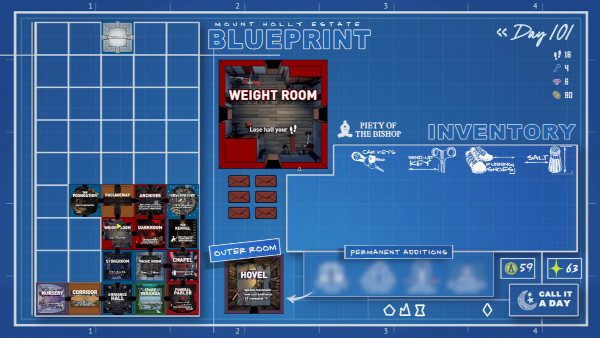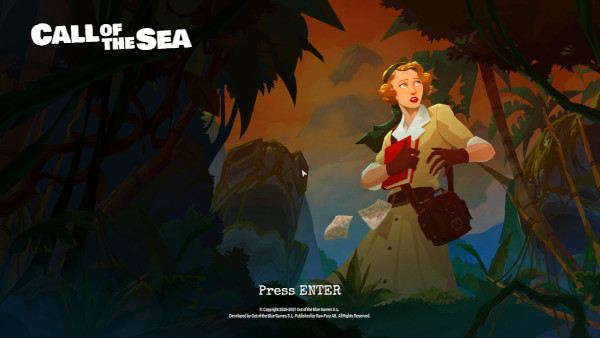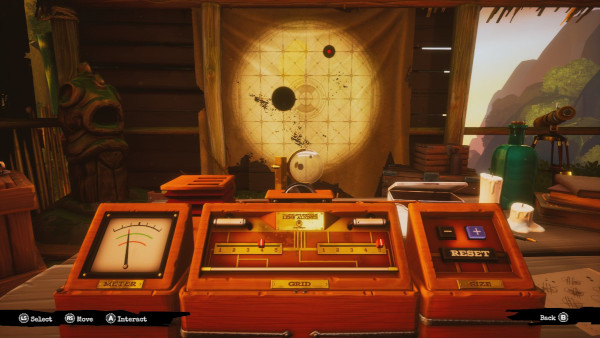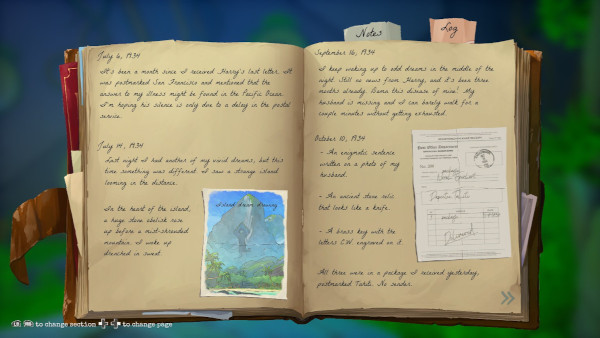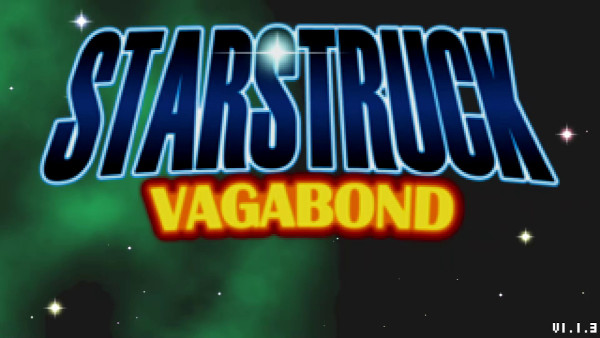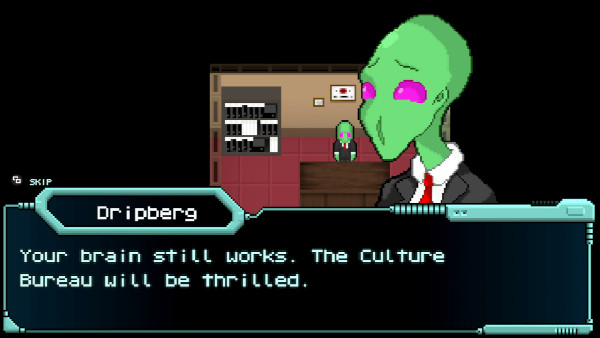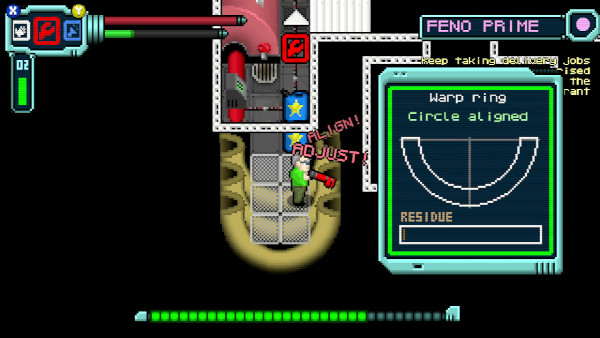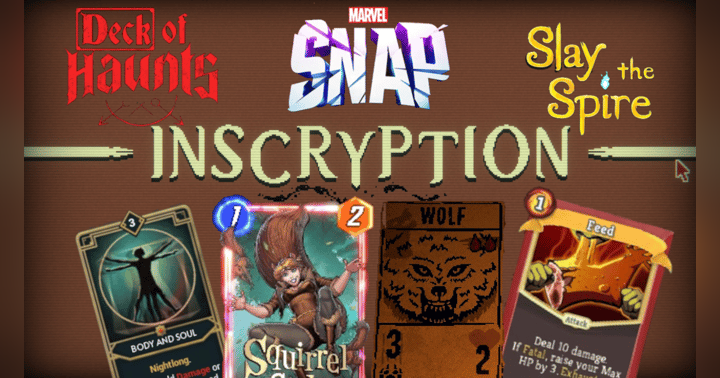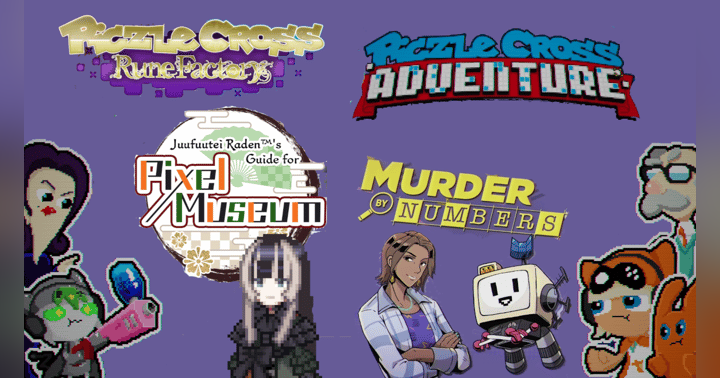Quick Reviews: Starstruck Vagabond, Blue Prince, and Call of the Sea
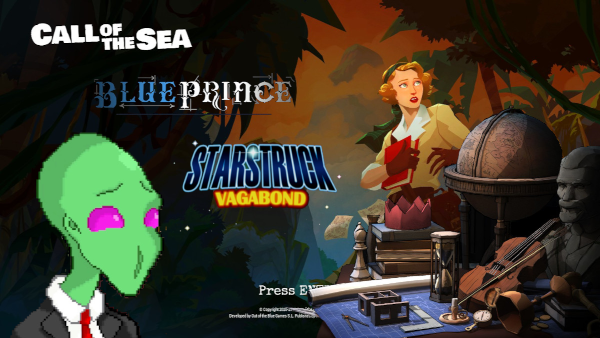
I'm back with some more recent games that I've been playing outside of our regular episodes, and this time I'm talking about three games inspired by the appearance Jaymo and I had over on Smashing Game Time where we were talking about the Best Games of the Decade So Far as part of their GOTYSO programming. The first two games we talked about during that episode were 2025's Blue Prince, which I campaigned strongly for, and Call of the Sea (2020), which I picked up and played through after that recording. The third game, also one that I think could've been in the running but might've been a bit too under the radar, is 2024's Starstruck Vagabond from video game criticism giant Yahtzee Croshaw.
Blue Prince
Blue Prince is one of the games that has gotten a lot of attention this year, and I heard enough about this from voices that I thought were trustworthy that I really didn't dig too deep into the game before picking it up, and I definitely made the right choice with that. I'm deliberately keeping some of this vague, but the very basic gist of this is that you've inherited a house and in order to keep it you must reach a secret room. The gameplay approach for that is that every day, all the rooms shift around and so you start in the entrance way, and then each time you go to a door you draw what the next room will be. There's also a few resources to manage - your steps (number of times you can go between rooms, basically) serve as a stamina, gems are used for selecting fancier rooms, and coins that can be used to buy items. As it is a roguelike, there's ways to improve all of those over time, but it starts off as quite a limitation. Other than that, the game doesn't provide too much specific guidance, and there's an early recommendation to have a notebook, which I would thoroughly recommend (screenshots are useful as well, but I have a full notebook of stuff I'm keeping track of over time where screenshots don't cut it).
What I appreciate so much about this game is the way that this handles puzzles. On a small scale (and quickly encountered), there's the parlor, where's three boxes with statements on them. The simple rules are that one box has only true statements and one box has only false statements, and those statements are needed to figure out which box contains more gems. There's also a math-based dartboard puzzle in the billiard room that I really like.... they're both self-contained puzzles in those rooms, so I'm around 100 days in and I'm still getting fresh puzzles in both rooms, and they've been gradually getting harder over time.
But those aren't the only puzzles. There's a whole lot of things to solve that take more than just one room - some of those are things that help towards reaching the secret 46th room, but a lot of them are pointing at deeper mysteries in this. It's not immediately clear which things are hints for the 46th room, which things are for the deeper lore elements, and which things aren't hints for anything. That's the element that sets Blue Prince apart from a lot of other games for me... it's so open-ended. The result is that when I do have something piece together... I recognize a piece somewhere as a hint towards something else... it's such a satisfying feeling. Without mentioning details, I've had more than one case of entering a room, and suddenly realizing that something I'd been keeping track of without knowing if it was significant or not now makes total sense. I love this sense of simply having all these things to work with and needing to sort out which were parts of puzzles and which weren't.
At this stage, I've put 60 hours into Blue Prince over 100 days, and because of the Roguelike style each day involves picking which angle I'm playing for as there's always numerous things I'm trying to explore (and I'm envious of anyone that has someone else at a similar point in the game to talk ideas with, because this would've been really fun to work through with someone else). I've reached the 46th room, and I've been so impressed with just how much deeper the game goes after that, and how much more is left to figure out. I do also appreciate that an update made it so that some things that have been opened once remain opened, so there's not as much repetition in that regard.
This game isn't for everyone, but for anyone that really likes a really open approach to puzzles, where figuring out what the puzzle is or isn't and connecting disparate threads are central, this is a game that I really don't have any other comparison for. It's why this was my contender for Game of the Decade So Far on Smashing Game Time. It's a big time investment, but it is also so incredibly satisfying for me. And if you do get into this, stop by our Discord because there's so much to say about this game than I'm holding back from talking about here.
Call of the Sea
Call of the Sea was a game I wasn't aware of until recording with Smashing Game Time, in part because this was brought up as a counter example to a game that does what Blue Prince does but better. And the point of this isn't to rebut the discussion we had over there or to knock Call of the Sea, but this game absolutely isn't a game like Blue Prince. It's not that it isn't as good as Blue Prince, it's that it's not even the same time of game as Blue Prince. Divided into several chapters, Call of the Sea is the story of Nora, a woman suffering a strange illness trying to find her husband, who disappeared leading an expedition trying to find a cure for her disease.
The game is a fairly standard structure where there's several chapters, and within each of those chapters, it's simply moving along from puzzle to puzzle so it's a linear storyline. I don't think this is a bad thing, it's just a point that I make for the distinction between this and Blue Prince. There is a bit of unveiling storyline going as well such that things aren't quite what they seem to be, but at the same time I think the Lovecraft references are so overt that if you know them, there's not too much here that feels like real twists. It was more wondering how long it would take to get to those points rather than what they would be.
The other interesting aspect to this, I thought, was the journal/log that you keep. So this is a combination of auto-triggering story events, items that you find, and parts to puzzles. All items need to be found to 100% the game, and while the game took me around 6-7 hours or so to beat, replaying chapters to 100% the game took me about 9 hours. I do like the story, and appreciate all the Lovecraft references in here (and there's a ton of them for a lot of different stories). I don't think the puzzles sell this game (and I think they have way too much dialogue to explain things to you to make sure you don't miss what you're supposed to be doing), but the story's solid enough.
Starstruck Vagabond
I first talked about Starstruck Vagabond way back in February on one of our Lite Switch episodes, Lite Switch: Feb 26, 2025 | To the Moon, Fatal Fury, Starstruck Vagabond, and more, but at that point I was only part way through a game that I finally 100%ed with about 60 hours of game time. As for the background of the game itself, Yahtzee is most well known as the guy behind the Zero Punctuation (and now Second Wind's Fully Ramblomatic) video game reviews, and so if you watch enough stuff about video games, you likely know his voice even if you don't know his name. But he also has had quite a pattern of dabbling in video game design like when he designed 12 games in 12 months, and actually including a Lovecraft-inspired game called The Music of Erich Zann. He has Dev Diaries he made at The Escapist going through that development process, and some of that series would involve the early steps of Starstruck Vagabond, a game that would eventually came out in 2024 (and which sat in my Steam backlog for most of 2024).
One of the interesting things that I think Yahtzee did was his approach to dialogue. A lot of games will either do one fairly fixed set of dialogue or try to have much more involved full decision trees. Starstruck Vagabond did something quite clever, I think, which is to have the prologue of sorts with some dialogue and the point of that dialogue is to figure out where you fit on a little personality matrix that he devised. And, of course, you can change it if you'd rather, and I certainly wasn't going to pass up the Marvin the Paranoid Android type (bitter apathy). From then on, all your dialogue is dictated by this, including which crewmates you'll get along with and which you won't get along with as well. It's part of his thing to make the dialogue seem a lot more complicated than it actually is, since he also has the times that the crew socializes be made up just of unrelated comments that fit together surprisingly well.
In any case, I much prefer just saying the sort of character I'd like to read dialogue for rather than the stress of having to do all the character interactions and keep deciding how I want to react to other people. That is very much a 'me' limitation, but it meant that the approach of Starstruck Vagabond was very appealing to me.
The gist of the story is that you start off as someone from Earth who had been making deliveries, then was frozen for like a thousand years, and thawed back out when there is no more Earth, really, but there's still sort of some extant legal structures you might have a right to. But because of the cut-rate lawyer involved, the first thing to do is really just to start traveling planet to planet, transporting goods while also stumbling upon more people to have end up on your ship. Space travel is grimy in Starstruck Vagabond, so a lot of time also goes into ship maintenance, which I guess does put this into the same realm of games like Stardew Valley (which isn't a game I've played) that have a strong maintenance/task component. Along the way, the story does also gradually evolve, and it does that in a fairly compelling manner so for most of this I was interested to see where the story would go. It's also got surprisingly good music for the whole time, which was a plus.
I did make it a point to get all the achievements, but the last stretch of that started to feel a tad closer to a chore. I think it was something like the last 20 hours (or maybe it just feels like it) where I was past the storyline and just chasing the final achievement. That said, I think someone who really digs the ship maintenance and that sort of low-level tasks that seem to crop up in some cozy games would get a lot more satisfaction out of that than I did, where my interest was more tied to completing the storyline. And of course, if I wasn't being weird about achievements, I would've been pretty content leaving the game when the storyline finished as that was a pretty solid sendoff.
Recap
Blue Prince is, by far, the game that I think has been the strongest game I've played that has come out this decade. I think it really does more than a lot of puzzle games by not clearly telling you where the puzzles are, and so there's a real sense of discovery involved in it, especially if not looking up solutions. If that sounds interesting, then going in knowing as little as possible and with a blank notebook in hand can make for a really satisfying experience. I bought it on Steam, but it's also available for both Xbox and PlayStation (and appears to currently be included on Game Pass and PlayStation Plus Extra, respectively).
Call of the Sea didn't impress me too much as far as the puzzles went, and I think it suffers from a tendency to feel like it needs to overexplain things to the player, but I do like the Lovecraftian elements to the story and I think this would be really enjoyable for anyone that wants a story steeped in that, and focused more on existential horrors than things like jump scares. It seems to often be available on sale, and at those sorts of prices I still think it's solidly worth it, be it on Steam, or on either PlayStation or Xbox.
Starstruck Vagabond was solid, and additionally impressive for basically being a core development team of one person, with parts contracted out. I think I'd probably enjoy this more if I was more of a fan of the cozy game genre, or the post-dad game genre, as this is somewhere around those two realms, but the part that I started to get a bit tired of it was just when I was achievement hunting and so it kept me interested through the whole narrative. It's a solid game and glad to support Yahtzee in this, so I'd not be worried about waiting for a sale. It's available on Steam.
Blue Prince is my favorite game of the three, but I think they're all enjoyable for the right audiences. Game on, everyone.
